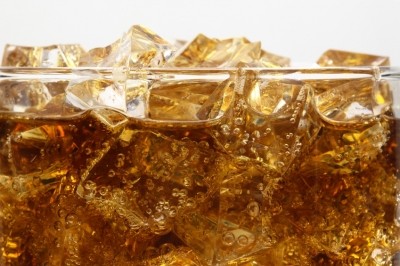New studies question diet soda benefits
Two research studies, recently presented at the American Diabetes Association's Scientific Sessions in San Diego, suggest that consuming diet soft drinks could be self-defeating. However industry members have hit back at the studies, noting that other recent studies contradict the results and affirm the benefits of consuming such drinks.
In the first study, researchers from the School of Medicine at The University of Texas Health Science Center, San Antonio, reported that diet soft drink consumption is associated with increased waist circumference in humans, whilst the second study that found aspartame raised fasting glucose levels in diabetes-prone mice.
“Data from this and other prospective studies suggest that the promotion of diet sodas and artificial sweeteners as healthy alternatives may be ill-advised,” said Dr Helen Hazuda, professor and chief of the Division of Clinical Epidemiology in the School of Medicine.
Mixed reaction
The studies have provoked mixed reaction within the industry, with the International Sweetener Association (ISA) questioning the research findings, adding that they do not match the findings of many other large scale studies.
“A number of research studies have examined whether low-calorie sweeteners have an effect on appetite, and, notably, whether they influence the level of insulin and glucose in the blood. One of the most important of these studies was carried out by Dr Härtel of Hannover University Medical School, Germany. This study showed that there was no difference in the levels of blood glucose in persons having consumed a low-calorie sweetened beverage and those who consumed water,” said the ISA.
However, Angus Flood, President of the World Stevia Organization, told FoodNavigator that the new research provides “clear support for previous studies” that suggest artificial sweeteners could have side-effects.
Study details
The first study, in humans, examined the relationship between diet soft drink consumption and long-term change in waist circumference in 474 people over an average of 9.5 years.
The researchers compared long-term change in waist circumference for diet soda users versus non-users in all follow-up periods, finding that diet soft drink users, as a group, experienced 70 per cent greater increases in waist circumference compared with non-users.
Frequent users, who said they consumed two or more diet sodas a day, experienced waist circumference increases that were 500 per cent greater than those of non-users.
In the related, second study, researchers examined the relationship between oral exposure to aspartame and fasting glucose and insulin levels in 40 diabetes-prone mice, finding that after three months on this high-fat diet, the mice in the aspartame group showed elevated fasting glucose levels but equal or diminished insulin levels, consistent with early declines in pancreatic beta-cell function.
“These results suggest that heavy aspartame exposure might potentially directly contribute to increased blood glucose levels, and thus contribute to the associations observed between diet soda consumption and the risk of diabetes in humans,” said Dr. Gabriel Fernandes, who led the second research study.
Aspartame evidence
The ISA told FoodNavigator that there is a vast amount of scientific evidence to support the consumption of low-calorie drinks to aid weight management.
“The consumption of low-calorie sweetened beverages can help in maintaining weight loss,” said the ISA.
“In light of the growing problem of overweight and obesity and the increased risk in the development of obesity-related diseases, low-calorie sweeteners can play a helpful role in reducing people's energy intake,” they added.
However, Flood argued that: “Irrespective of whichever side of the scientific argument is in ascendancy, the consumer makes the ultimate decision.
“Every new published study which indicates metabolic and neurological problems with synthetic sweeteners further promotes natural sweetening choices especially for consumption by vulnerable groups eg children and pregnant women,” he added.














